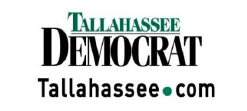Atlantic Magazine Story Shows Tragic Consequences of Gambling Addiction and Examines Casino’s Role in Enabling Addiction
November 18, 2016History of gambling in Florida
February 2, 2017ICYMI: No Casinos’ “My View” column in Tallahassee Democrat
 My View: State busts in legal showdown with Seminole Tribe
My View: State busts in legal showdown with Seminole Tribe
November 29, 2016
BY Paul Seago, Executive Director of No Casinos
The state of Florida has lost a major legal showdown with the Seminole Tribe over whether or not the tribe could continue playing Blackjack and Baccarat at their facilities, and whether or not they have to share revenue from those games with the state.
To use a gambling parlance – the state busted.
This case involves the 2010 compact between the tribe and the state. As part of that agreement, the Seminoles were granted exclusive rights to offer banked card games for a five-year period, in exchange for $1 billion to the state. The deal contained penalties if the state violated the tribe’s exclusivity, giving the public assurance that the compact would actually halt further expansion of gambling.
In 2011, Florida regulators allowed pari-mutuels to offer so-called “designated-player’’ card games, a new game that – unlike traditional poker – features players trying to get a better hand than a designated player, who then pays out winners and collects from losers.
While these games are certainly lucrative for the pari-mutuel owners, the state realizes little revenue from their play versus what is at risk by violating the compact. The FY 2014-2015 annual report from the Department of Pari-Mutuel Wagering shows that combined revenue to the state from all licensed card rooms was $14.3 million. In contrast, the minimum payment from the tribe to the state that year was $234 million.
Why regulators would take this risk is baffling. Here is what is more baffling – these games appear to violate state law.
Florida Statute 849.086(12)(a) specifically prohibits “any banking game or any game not specifically authorized by this section.”
The state argued that because these “dealers” were not employees of the facility, the games should not considered banked. U.S. District Judge Robert Hinkle disagreed, saying, “a ‘banked game’ is a ‘banked game,’ whether banked by the house, a player, or someone else.”
Not only does his ruling allow the tribe to continue offering Blackjack and Baccarat at tribal gambling facilities for the next 14 years, it also enacts the penalty clause in the compact for violating the tribe’s exclusivity, putting hundreds of millions of dollars a year from play of these games flowing into the state budget into jeopardy.
This whole episode continues what we have called “gambling creep” – the way that gambling expands beyond what was originally intended. The two-step process for ending this is for legislators and regulators to resist any and all attempts to expand gambling, and to re-establish Florida voters as the ultimate authority when it comes to deciding on the expansion of casino-style gambling.
This is why No Casinos supports the Voters in Charge initiative, which would once and for all clarify that provision. The initiative is being reviewed by the Florida Supreme Court in anticipation of appearing on the 2018 ballot.
Without a clear, bright line in our state’s constitution, gambling expansion will continue to be subject to the vagaries of inept and over-reaching regulators, high-priced lawyers and exasperated judges.
Paul Seago is executive director of No Casinos.
To read the column on the Tallahassee Democrat’s website, click here
